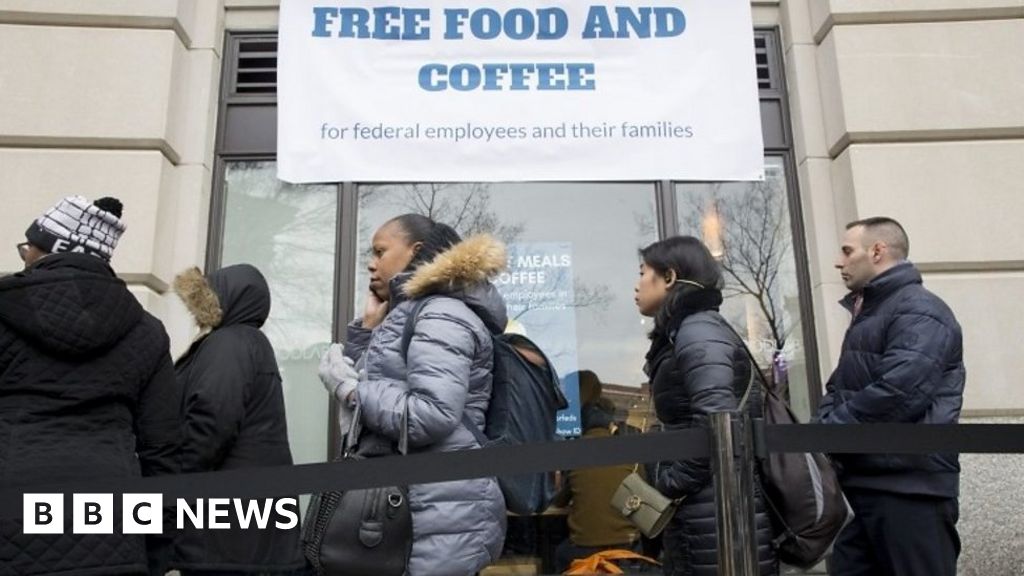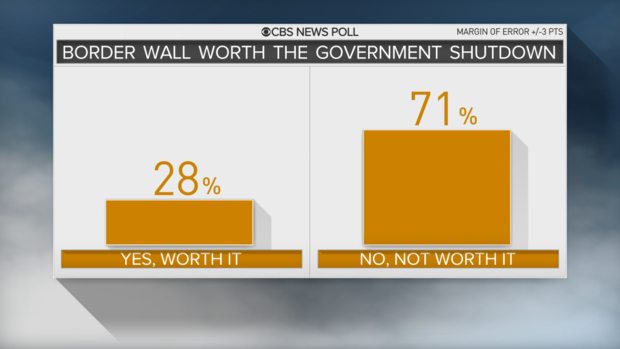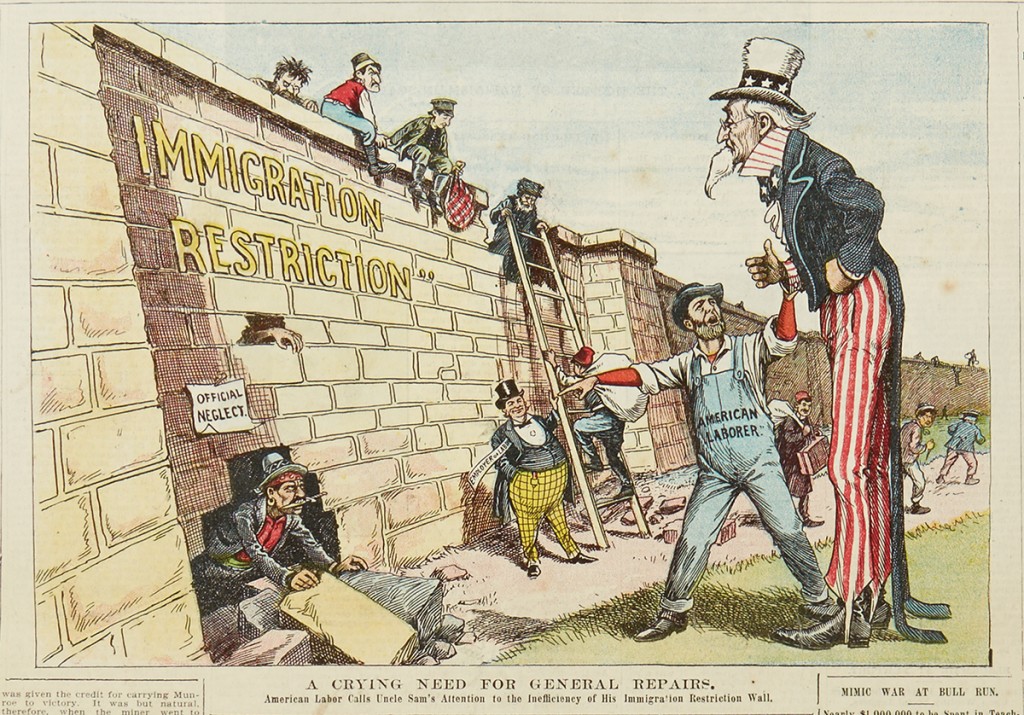
The judicial and executive branches tussle over a bone that belongs to legislative branch. But in spite of near unanimous pro-Dreamer public opinion, Congress has wasted nine years doing nothing to protect them.
Friday, a Bush-appointed federal judge in Texas issued an injunction that stops the Department of Homeland Security from approving any new DACA applications. The judge’s opinion reviews the main arguments against the legality of the program from the beginning, but his ruling stopped short of removing its protections against deportation, and Dreamers will still be able to hold jobs. The order undoubtedly will be appealed, and will eventually end up at the Supreme Court.
In short, this was yet another incident in a very tangled legal history. President Obama established DACA by executive order in 2012 in order to protect undocumented immigrants who had been brought to the US as children. He tried to extend the program to their parents via another executive order in 2014, but the courts blocked that plan. President Trump tried to end DACA by executive order in 2017, but the courts stopped him too. Now a judge appears to want to end the program himself.
I’m tempted to do what I usually do with significant court rulings: explain in layman’s terms why the judge is right or wrong. But that kind of article would miss the point. The larger and more important story is that democracy shouldn’t work this way. And the root problem isn’t with the two dogs barking at each other: It’s not that Obama or Trump overstepped, or that the courts should or shouldn’t have let them. The problem is with the dog that hasn’t barked: Congress.
How this started. I doubt President Obama ever imagined that DACA would still be around nine years later. In the speech that announced the program, he prodded Congress to pass the DREAM Act, or take some other action to supersede his order:
This is a temporary stopgap measure that lets us focus our resources wisely while giving a degree of relief and hope to talented, driven, patriotic young people. It is the right thing to do.
Precisely because this is temporary, Congress needs to act. There is still time for Congress to pass the DREAM Act this year, because these kids deserve to plan their lives in more than two-year increments. And we still need to pass comprehensive immigration reform that addresses our 21st century economic and security needs
At the time, passing the DREAM Act didn’t seem like a heavy lift. DACA immigrants, a.k.a. Dreamers, are the poster children of the undocumented. Their parents brought them to the US as minors, when they had little choice in the matter. They have grown up here, stayed out of trouble, and gotten an education. Most speak English like natives and are full participants in American culture. Hundreds and hundreds of them have served in the US military.
Some did not know they were undocumented until it came time to apply for a driver’s license or a Social Security card.
Freshman year is when I first found out I was undocumented. I was waiting at registration and when the clerk was going through my paperwork, she asked if I knew my Social Security number. I told her I’d get it from my mom later. When I got home, my parents had told me about my “story”.
Many have little connection to their country of origin.
I haven’t been to Mexico since I left as a 3-year-old, more than 25 years ago. I have no memory of the place, and I’m culturally American — I would feel more like an outsider there than I do here. I have no clue how I would make a living, or where I would go. I had the opportunity to take some Spanish classes in college, but I speak it with an Alabama accent and can’t read or write the language well.
As Obama said back in 2012:
Put yourself in their shoes. Imagine you’ve done everything right your entire life — studied hard, worked hard, maybe even graduated at the top of your class — only to suddenly face the threat of deportation to a country that you know nothing about, with a language that you may not even speak.
In short, deporting the Dreamers to Mexico (or wherever else they might have been born) would be an obvious injustice. In poll after poll, large majorities of Americans recognize this. And while many right-wing politicians are anti-immigrant, few step up to lead an anti-Dreamer movement. Even President Trump purported to be rooting for them. As President-Elect in 2016, he told a Time interviewer:
We’re going to work something out that’s going to make people happy and proud. They got brought here at a very young age, they’ve worked here, they’ve gone to school here. Some were good students. Some have wonderful jobs. And they’re in never-never land because they don’t know what’s going to happen.
Dysfunction. So if everybody is for you and nobody is against you, you should be OK, right?
Not so fast. In September of 2017, Trump and Democratic leaders in Congress briefly seemed to have a deal, but it quickly fell through. The problem: As much as Trump claimed to sympathize with the Dreamers, they made great hostages, and he never thought Democrats were paying enough to ransom them. As late as last summer, he kept naming a price and then backing away from it:
Trump has previously offered legislative proposals that would give Dreamers permanent legal protections in exchange for some of his hard-line immigration priorities, including cuts to legal immigration and border wall funding. But the offers failed in part because the president himself backed away after facing opposition from immigration hawks who accused him of going against his own campaign promises.
Some version of the DREAM Act has passed the House more than once, most recently on March 18. Once again, though the anti-democratic nature of the Senate looms:
The American Dream and Promise Act is the latest version of the Dream Act, which Senate Republicans have filibustered five different times to prevent the taking of a vote. This year, Democrats have edged out Republicans for control of the Senate, but a sixth filibuster is all but certain as it takes 60 votes to defeat a filibuster.
But the filibuster hasn’t been the only problem. Back in 2013, the stars aligned in the Senate, but not the House, largely because Speaker Boehner enforced a different anti-democratic process: the Hastert Rule, which allowed nothing to come up for a vote without the support of a “majority of the majority”. The rule worked like this: Republicans held 234 of the 435 seats in the House, so a mere 118 Republicans would constitute a “majority of the majority”. So 27% of the House could block the other 73% from accomplishing anything.
That anti-democracy feature built on top of another one: Gerrymandering was the only reason Republicans had a House majority at all. In the 2012 elections, John Boehner’s Republicans got 47.7% of the vote, and Nancy Pelosi’s Democrats 48.8%. In other words, Republicans representing on 24% of the country held veto power over the other 76%.
So nothing happened.
Power abhors a vacuum. If you read much about American politics, you will often run into complaints about the imperial presidency, or judicial activism. Presidents of either party, and liberal or conservative judges alike, are grabbing too much power, power the Constitution never intended them to have. Examples are easy to find.
But the problem isn’t executive or judicial strength, it’s legislative weakness.
When the People want something, and Congress can’t act because it has tied itself in knots, presidents will look for a way to make it happen. (That’s where DACA comes from.) If Congress can’t wield the war power, presidents will. (Congress still hasn’t repealed or replaced the Authorization for the Use of Military Force it passed after 9-11. Maybe it will soon.)
When laws are vague, or become obsolete as times change, and Congress refuses to clarify or update them, judges will find a way to read meaning into the laws they have. (This is basically the problem with the Second Amendment, which no longer means anything independent of judicial interpretations. How does that text give you the right to own an AR-15, but not a bazooka or an exocet missile? Did the Founders really anticipate that distinction?) No judge is going to tell plaintiffs and defendants “Hell, I don’t know.” And once you have to start making something up, why not make up something you think is good according to your own lights?
So we shouldn’t be arguing year after year about whether the Supreme Court is interpreting the Religious Freedom Restoration Act properly. Congress should look at the Court’s interpretation of the old law and pass a new one that better captures the People’s will. Those debates should be happening in committee hearings, not in amicus briefs to judges.
Conversely, when powerful interests in the country want something to happen and Congress won’t stop them, they’ll get their way by manipulating the bureaucracy. If unscrupulous presidents know Congress won’t enforce the limits on their power, and that they can violate any law without fear of impeachment, bad things will happen. And whose fault will that be?
American democracy had a near-death experience the end of the Trump administration. There is no lack of good thinking about how to tighten up the constraints that protect us against future usurpations. But will any of that happen? Of course not.
In a year or two, we may be back to deporting people who know no other country than this one, and who show every sign of the potential to be good citizens. Hardly anybody wants that to happen. But the body whose job it is to stop it is broken.













 Last week I pointed out the fallacy that Trump only objects to illegal immigration, and is just trying to uphold US laws. (Not only is he
Last week I pointed out the fallacy that Trump only objects to illegal immigration, and is just trying to uphold US laws. (Not only is he 




